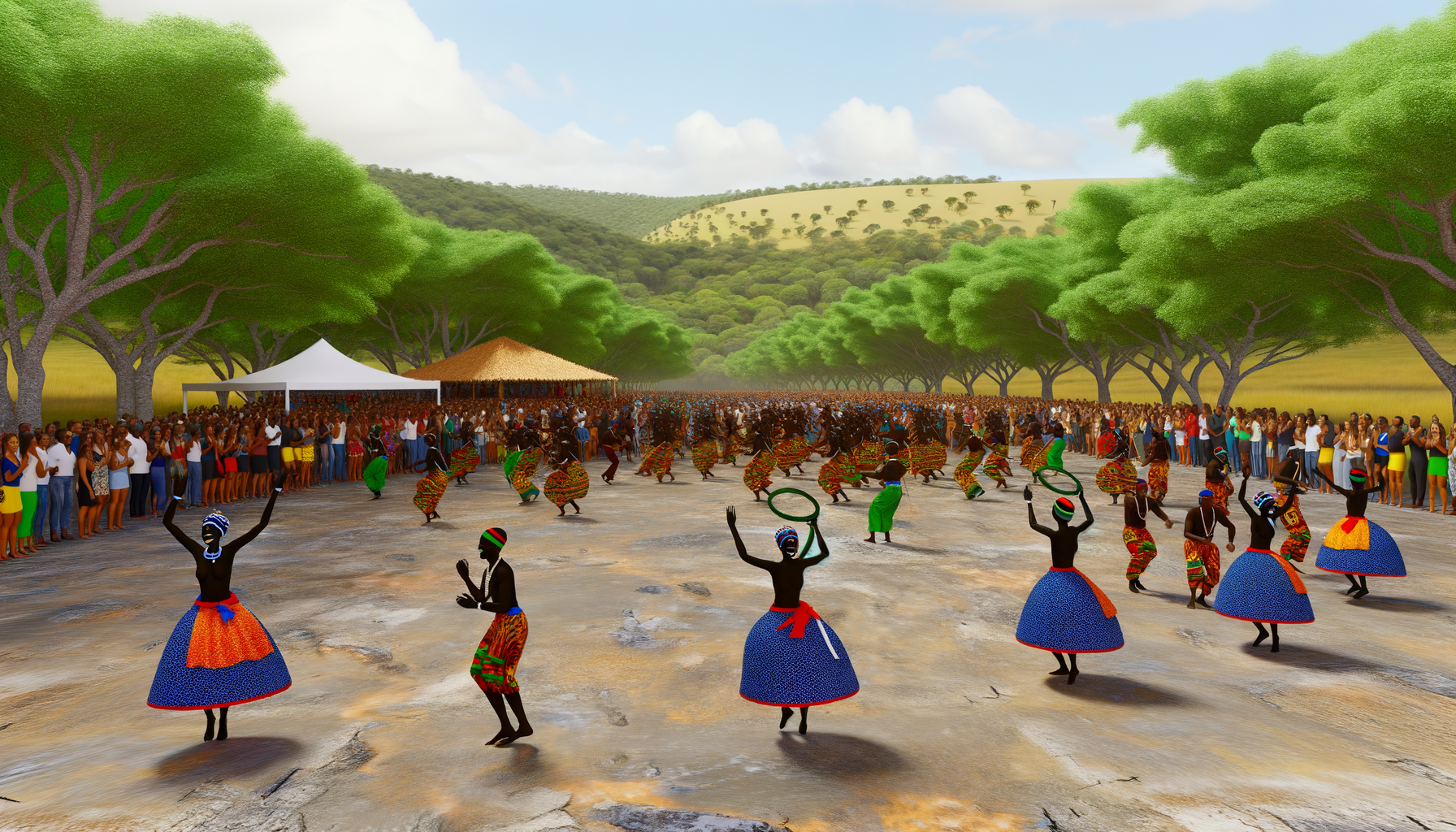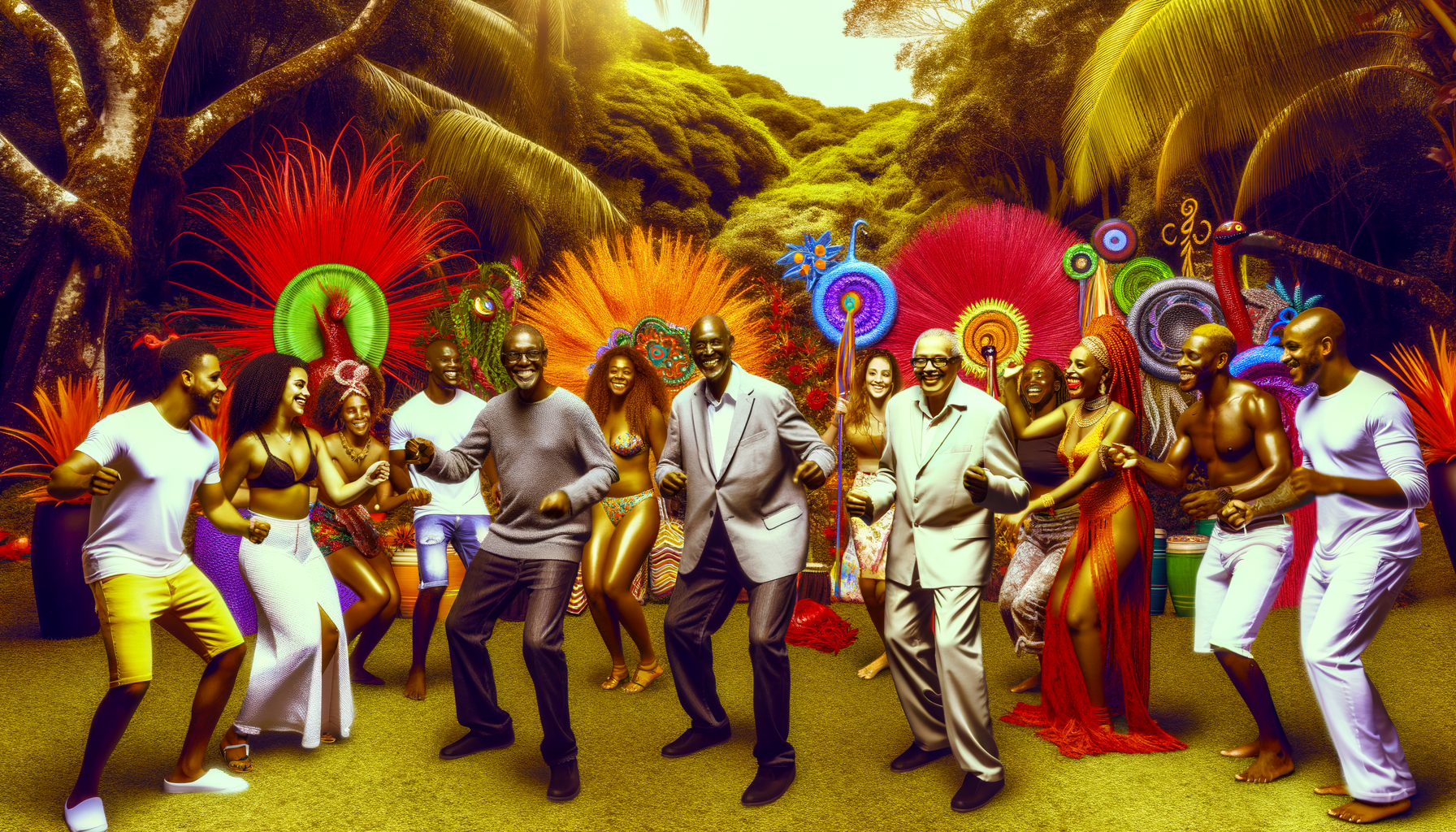Black Consciousness Day is a date that stands out in the Brazilian calendar, not only as a moment of reflection but as a symbol of struggle and resistance. Celebrated on November 20th, the day honors the memory of Zumbi dos Palmares, leader of the resistance movement against slavery in Brazil. The importance of this date goes far beyond a simple celebration; it represents awareness of Afro-Brazilian history and culture, promoting a space to discuss the racial inequalities that still persist in our society.
With this, Black Consciousness Day invites everyone to reflect on the past, to value cultural diversity, and to promote actions that seek social equity. Throughout this article, we will explore the origin of this date, its traditions, and the impacts it has on the contemporary scenario of Brazil.
History of Black Consciousness Day in Brazil
Black Consciousness Day is celebrated on November 20 and marks the death of Zumbi dos Palmares, an important leader of the resistance against slavery in Brazil. This holiday, which is considered a state holiday in several states, including Rio de Janeiro and São Paulo, was instituted to promote reflection on the struggle of the black population throughout Brazilian history. The date was chosen to remember not only the figure of Zumbi but also the resistance and struggle of enslaved Africans and their descendants. The Brazilian black movement began to gain strength from the 1970s, and with that, the date became a symbol of struggle and resistance.
The proposal to establish Black Consciousness Day emerged during the National Conference on Policy for the Black Population, held in 2001. Since then, several cities and states began to recognize the date as a way to value Afro-Brazilian culture. In 2011, federal law 12.519 officially established November 20 as the National Day of Black Consciousness. This legal change was a significant step in promoting racial equality and recognizing the contributions of Afro-Brazilians to society.

Black Consciousness Day goes beyond a simple commemorative date; it represents a continuous struggle for equality and respect. The celebration of the date is an opportunity for society to reflect on the challenges faced by the black population, such as racism and social inequality. With this, the aim is also to promote the appreciation of Afro-Brazilian culture, which is rich and diverse and influences various aspects of Brazilian life, from music to cuisine. Thus, Black Consciousness Day becomes a crucial date for the construction of a fairer and more egalitarian society.
👉 Download the Calendar for 2025
Full Calendar of Black Consciousness Day until 2050
Next Event
New Year - 01/01/2026| Year | Next Date |
|---|---|
| Black Consciousness Day in 2025 | 11/20/2025 |
| Black Consciousness Day in 2026 | 11/20/2026 |
| Black Consciousness Day in 2027 | 11/20/2027 |
| Black Consciousness Day in 2028 | 11/20/2028 |
| Black Consciousness Day in 2029 | 11/20/2029 |
| Black Consciousness Day in 2030 | 11/20/2030 |
| Black Consciousness Day in 2031 | 11/20/2031 |
| Black Consciousness Day in 2032 | 11/20/2032 |
| Black Consciousness Day in 2033 | 11/20/2033 |
| Black Consciousness Day in 2034 | 11/20/2034 |
| Black Consciousness Day in 2035 | 11/20/2035 |
| Black Consciousness Day in 2036 | 11/20/2036 |
| Black Consciousness Day in 2037 | 11/20/2037 |
| Black Consciousness Day in 2038 | 11/20/2038 |
| Black Consciousness Day in 2039 | 11/20/2039 |
| Black Consciousness Day in 2040 | 11/20/2040 |
| Black Consciousness Day in 2041 | 11/20/2041 |
| Black Consciousness Day in 2042 | 11/20/2042 |
| Black Consciousness Day in 2043 | 11/20/2043 |
| Black Consciousness Day in 2044 | 11/20/2044 |
| Black Consciousness Day in 2045 | 11/20/2045 |
| Black Consciousness Day in 2046 | 11/20/2046 |
| Black Consciousness Day in 2047 | 11/20/2047 |
| Black Consciousness Day in 2048 | 11/20/2048 |
| Black Consciousness Day in 2049 | 11/20/2049 |
| Black Consciousness Day in 2050 | 11/20/2050 |
Importance of Black Consciousness in today's society
The importance of Black Consciousness in today's society is reflected in the need to promote greater racial equity. Brazil, one of the countries with the largest black population outside Africa, still faces significant challenges related to racial discrimination and socioeconomic inequality. The date is not only a moment of celebration but also an opportunity for discussion about the issues that the black population continues to face. Recognizing the importance of the date is essential to advancing towards a more egalitarian society.
👉 Download the Calendar for 2025
Finally, the celebration of Black Consciousness Day also promotes a greater appreciation of Afro-Brazilian culture. Artistic expressions, such as music, dance, and cuisine, are fundamental to the cultural identity of Brazil. Through events and activities promoted on this date, the aim is not only to celebrate but also to educate the population about the contributions and history of Afro-Brazilian culture. This cultural recognition is vital for building a society that respects and values ethnic and cultural diversity.
Activities and celebrations held on Black Awareness Day
On Black Awareness Day, various activities and celebrations are organized throughout Brazil. Cultural events, such as dance, music, and theater performances, are common and attract participants of different ages and backgrounds. These activities aim to highlight the richness of Afro-Brazilian culture and promote reflection on the history and struggles of the Black population.
Schools also play a fundamental role in celebrating Black Awareness Day. Many educational institutions hold educational activities, such as lectures, discussions, and exhibitions, aimed at raising students' awareness of the importance of the date and Afro-Brazilian culture. These initiatives are essential for promoting respect for cultural diversity and critical reflection on the history of Brazil. Through education, it is possible to form more conscious citizens committed to racial equality.

In addition to official celebrations, the community also mobilizes to organize their own events, such as parades, craft fairs, and Afro-Brazilian cuisine. These initiatives are a way to strengthen community ties and promote the appreciation of local culture.The activities promoted on Black Awareness Day are diverse and reflect the richness and diversity of Afro-Brazilian culture, contributing to a space of resistance and celebration.
Contributions of Afro-Brazilian Culture
Afro-Brazilian culture is one of the pillars of Brazil's cultural identity, influencing aspects such as music, dance, cuisine, and popular traditions. Musical genres such as samba, bossa nova, and axé have deep roots in African culture and are celebrated throughout the country. These rhythms not only represent Brazil's cultural diversity but are also a form of resistance and identity affirmation for the black population. Afro-Brazilian music is a phenomenon that transcends borders and connects people from different backgrounds.
👉 Download the Calendar for 2025

Afro-Brazilian cuisine is also a significant contribution. Dishes such as acarajé, feijoada, and moqueca are examples of how African culinary traditions have been incorporated into Brazilian gastronomy. These dishes are not only delicious but also carry historical and cultural meanings. Through cuisine, it is possible to perceive the resilience and creativity of the black population in constructing a unique and rich cultural identity.
In addition to artistic and culinary expressions, Afro-Brazilian culture also manifests in various traditions and festivities. Candomblé and umbanda, for example, are Afro-Brazilian religions that represent spirituality and cultural resistance. These religious traditions are fundamental for the preservation of Afro-Brazilian identity and contribute to the country's religious diversity.
Challenges faced by the black population in Brazil
The black population in Brazil faces a series of challenges that are deeply rooted in the country's history. Among the main issues are social inequality, racial discrimination, and violence. Despite being the majority of the population, black people still occupy lower social and economic positions compared to whites. Income inequality is a direct reflection of this scenario, where the black population has less access to job opportunities and quality education.
Violence against the black population is another alarming issue. Studies indicate that young black people are more likely to be victims of homicide compared to young whites. This reality is the result of a series of factors, including social marginalization and the lack of effective public policies to combat racism and violence.
Furthermore, structural racism is an ongoing challenge that the black population faces in Brazil. This phenomenon manifests in various spheres, from the labor market to the justice system. The lack of political representation and invisibility in the media are also issues that contribute to the perpetuation of inequalities. Therefore, it is essential for society as a whole to mobilize to confront these challenges and promote a fairer and more equal future.
Education and awareness about Afro-Brazilian history
Education is an essential tool for promoting racial awareness and overcoming the inequalities faced by the black population in Brazil. Teaching Afro-Brazilian history in schools is fundamental for new generations to understand the importance of Afro-Brazilian culture and contributions. Since 2003, Law 10.639 has established the mandatory teaching of Afro-Brazilian history and culture in elementary and high schools.
👉 Download the Calendar for 2025
In addition to formal education, it is important to promote initiatives that encourage awareness of Afro-Brazilian culture and the challenges faced by the black population. Community projects, lectures, workshops, and cultural events are examples of how education can be used to promote reflection and the exchange of experiences.
Reflection on the Theme
The reflection on the theme in question leads us to consider various nuances that often go unnoticed. It is essential to analyze each aspect critically and carefully, as this helps us better understand the implications and consequences of our choices.
Moreover, when addressing this subject, we must remember the importance of listening to different perspectives. This not only enriches our knowledge but also allows us to develop a more complete and balanced view. In other words, the diversity of opinions is a key point that should not be overlooked.
